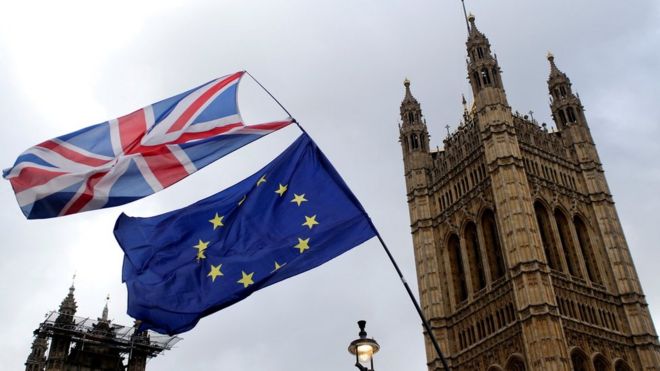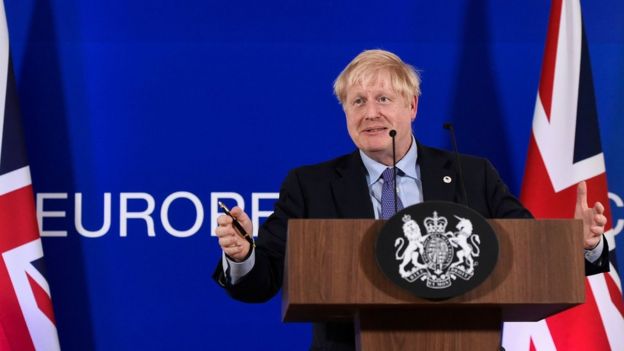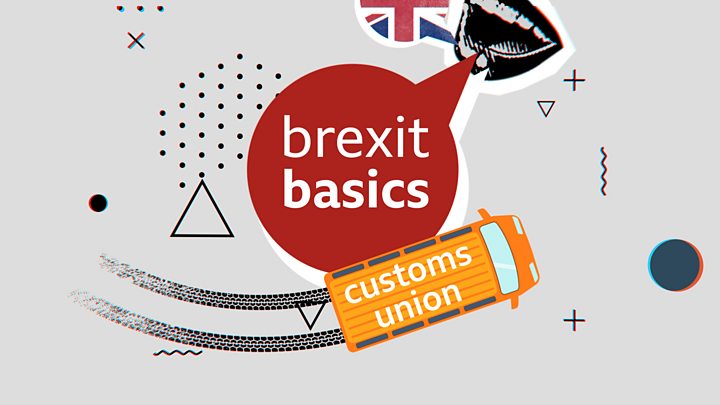 REUTERS
REUTERS
In the Brexit process, we've had a Withdrawal Bill and we've got a withdrawal agreement.
Now the government has published the Withdrawal Agreement Bill (WAB).
Its purpose? To turn the withdrawal agreement, which is a draft international treaty, into UK law and to give the government permission to ratify it.
The terms on which the UK will leave the EU have now been agreed between Boris Johnson's government and those of the other 27 member states.
Theresa May's government got to the same stage, but failed to win approval in Parliament for the settlement it had negotiated.
Mr Johnson hopes to go one better, by turning the agreement into legislation and getting the House of Commons to approve it.
 AFP
AFP
He wanted that to happen to fulfil his promise to leave the EU by 31 October, but it was a tough ask, to say the least.
Bills to implement major European treaties usually take several weeks to get through Parliament, and sometimes considerably longer.
If the government had a solid majority in the House of Commons, it could have pushed the bill through pretty quickly. But it doesn't, and its opponents insisted on more time to scrutinise the legislation properly.
It is, they argue, one of the most important pieces of legislation in decades, and MPs need to be sure they know exactly what it says and does.

So what does the WAB actually cover? Among other things:
- It sets out exactly how the UK will make "divorce bill" payments to the EU for years to come
- It repeals the European Communities Act, which took the UK into the EU, but then reinstates it immediately for as long as a post-Brexit transition period lasts
- It contains language on how the new protocol on Ireland - setting up a customs and regulatory border between Northern Ireland and Great Britain - will work in practice. An accompanying impact assessment lays out some of the costs and bureaucracy that companies doing business in Northern Ireland will face
- It sets out areas in which the European Court of Justice still plays a role in the UK, and makes the withdrawal agreement in some respects "supreme" over other areas of UK law
- Its language on workers' rights - an important issue for many MPs - is pretty vague, because Mr Johnson's deal moves obligations in this area from the withdrawal agreement to the non-binding political declaration on future relations
- It suggests that if the government doesn't ask for an extension of the transition period beyond the end of 2020, parliament won't have a say in changing that, even if a free trade deal isn't ready in time
- In the section on citizens' rights it sets up an independent monitoring authority (IMA) with which EU nationals in the UK can lodge any complaints about the way the government treats them
- In several policy areas, particularly in Northern Ireland, the bill gives ministers a lot of power to change the law (through secondary legislation) without MPs getting to vote
On Tuesday 22 October the bill passed its first hurdle, the second reading, with a majority of 30. But the government also lost a critical vote over the timetable of the bill.
The 31 October deadline is now extremely difficult to meet and the EU will consider an extension. In the meantime, Mr Johnson has paused the bill.
Whatever the eventual timetable, there will still be opportunities for the legislation to be amended. It's expected some MPs will try to add a provision for holding a confirmatory referendum on Brexit, for example, and for the UK to remain in a customs union with the EU.
That's why the WAB is tricky for the government: sensitive issues which can be fudged a bit in political communications have to be set down in black and white - and in precise legal language - for all to see.
The government still insists that it has the numbers to get this legislation through Parliament.
If it fails to do that in time, then the default position is currently that the UK would leave the EU without a deal on 31 October.
But under the terms of the Benn Act the prime minister sent a letter to European Council President Donald Tusk making a formal request for an extension to the Brexit process until 31 January 2020.
The EU are now deciding how to respond to the extension request.
https://www.bbc.com/news/uk-politics-50125338